
Polyvinyl Alcohol (PVA) Solutions for Industry & Beyond
Understanding Polyviny Alcohol (PVA): A Versatile Polymer for Industrial Applications
Polyviny Alcohol (PVA) is a synthetic polymer renowned for its excellent film-forming, emulsifying, and adhesive properties. As a water-soluble polymer, PVA finds extensive use across numerous industrial sectors, including textiles, paper manufacturing, adhesives, construction, packaging, and specialized chemical applications. Its unique molecular structure allows for superior tensile strength, solvent resistance, and biodegradability in specific environments, making it a critical component in formulating advanced materials and solutions. The global demand for PVA continues to grow, driven by innovations in sustainable manufacturing and its indispensable role in high-performance product development.
Manufacturing Process of Polyviny Alcohol
The production of Polyviny Alcohol involves a precise, multi-stage chemical process, primarily starting from polyvinyl acetate. This manufacturing route ensures the desired degree of hydrolysis and polymerization, critical factors determining the final product's characteristics and performance.
Process Flow Overview:
- Monomer Synthesis: The process begins with the production of vinyl acetate monomer (VAM), typically from ethylene or acetylene and acetic acid.
- Polymerization: VAM undergoes free-radical polymerization to form polyvinyl acetate (PVAc). This stage involves precise control over temperature, pressure, and initiator concentration to achieve the desired molecular weight.
- Hydrolysis (Saponification): The critical step in converting PVAc to PVA is hydrolysis. Polyvinyl acetate is reacted with an alkaline catalyst (e.g., sodium hydroxide) in an alcoholic solvent (e.g., methanol). This process cleaves the acetate groups from the polymer backbone, replacing them with hydroxyl groups. The degree of hydrolysis (DH) is meticulously controlled to produce different grades of PVA, ranging from fully hydrolyzed to partially hydrolyzed.
- Washing and Drying: The resulting PVA gel is washed to remove residual catalyst, salts, and unreacted alcohol. Subsequently, it is dried, usually in a fluidized bed dryer or flash dryer, to obtain PVA powder, granules, or flakes.
- Grinding and Sieving: The dried PVA is then ground to the desired particle size and sieved to ensure uniformity and consistency for specific applications.
Product Materials: The primary raw materials are vinyl acetate monomer, acetic acid, methanol, and caustic soda (NaOH). Each material is sourced to meet stringent purity standards to prevent contamination and ensure optimal polymer performance.
Manufacturing Processes: Key stages involve reaction engineering for polymerization and hydrolysis, followed by advanced separation and drying technologies. Quality control checkpoints are integrated throughout, including gas chromatography for monomer purity, viscometry for molecular weight, and titrimetry for degree of hydrolysis.
Testing Standards: Our polyviny alcohol products adhere to international quality standards such as ISO 9001 for quality management systems. Individual product batches are tested against specific parameters including viscosity, degree of hydrolysis, ash content, pH, and volatile matter, conforming to industry-specific requirements and customer specifications.
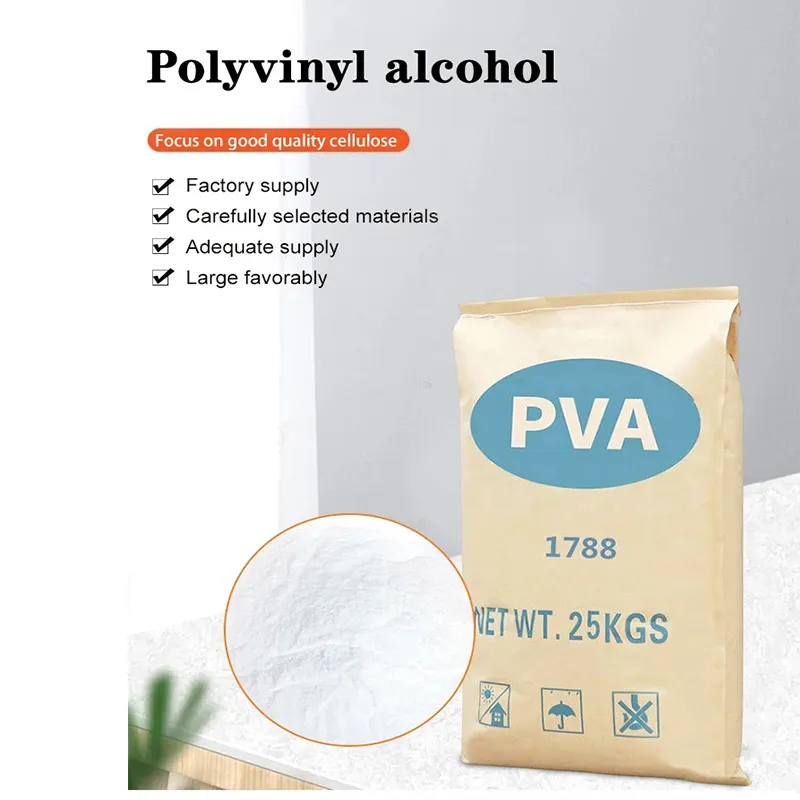
Service Life: When stored correctly in a cool, dry environment, PVA typically exhibits a shelf life of 12 to 24 months, retaining its full functional properties. Its durability in end-use applications, such as textile sizing or as a binder in pva cement, can extend for many years, contributing to the longevity and performance of the final product.
Target Industries: Our PVA serves a diverse range of industries, including:
- Construction: As a crucial additive for mortar, concrete, and dry-mix formulations, enhancing workability, adhesion, and crack resistance.
- Textiles: For warp sizing, improving yarn strength and reducing breakage during weaving.
- Paper: As a surface sizing agent and pigment binder, improving strength, printability, and oil resistance.
- Adhesives: As a base polymer for various water-soluble adhesives and emulsion stabilizers.
- Specialty Chemicals: In ceramics, agriculture, personal care, and medical applications.
Advantages in Typical Application Scenarios: In construction, PVA enhances the cohesion and adhesion of mortar, leading to increased tensile strength and anti-cracking properties, ultimately extending the service life of structures. In textile sizing, it offers superior film strength and excellent abrasion resistance, reducing yarn breakages and improving production efficiency, thus contributing to energy saving by optimizing manufacturing processes.
Industry Trends and Market Dynamics for PVA
The global market for polyviny alcohol is experiencing dynamic growth, driven by increasing demand from the construction, packaging, and textile industries, particularly in emerging economies. Key trends include the rising adoption of PVA in sustainable packaging solutions due to its biodegradability and water solubility, and its expanding use in advanced building materials to improve performance and durability. Furthermore, the development of specialized PVA grades for high-tech applications, such as 3D printing filaments and medical devices, is opening new market avenues. Manufacturers are also focusing on optimizing production processes to enhance cost-efficiency and environmental sustainability, responding to stricter regulatory landscapes and consumer preferences for greener products. The competitive landscape among polyvinyl alcohol manufacturers is intensifying, leading to innovation in product offerings and service models.
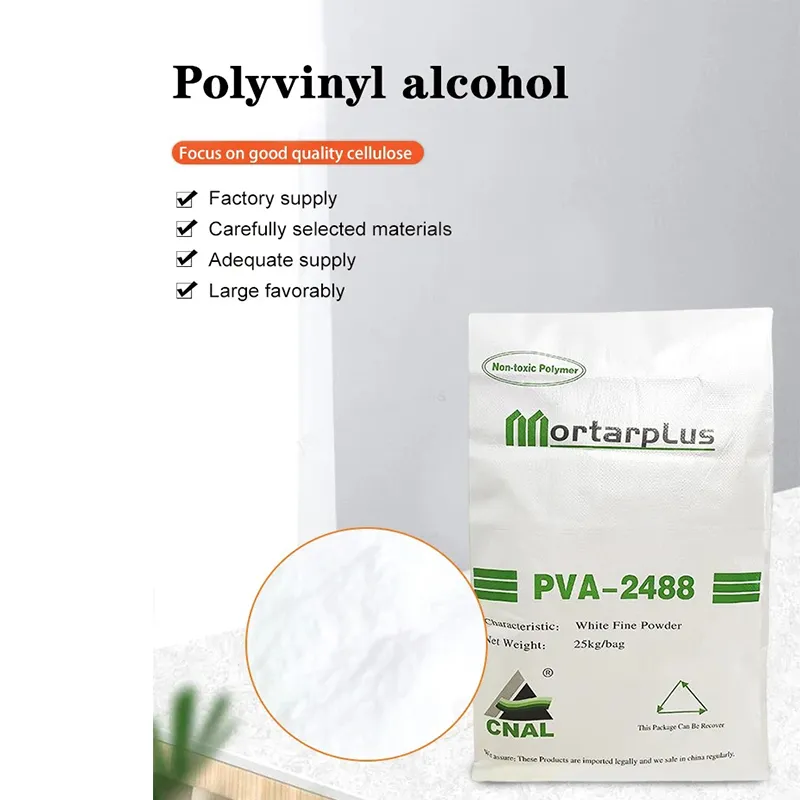
Technical Specifications and Product Grades
Polyviny Alcohol is available in various grades, differentiated primarily by their degree of hydrolysis (DH) and polymerization (molecular weight), which directly impact their solubility, viscosity, and film properties. Selecting the correct grade is paramount for optimal performance in specific applications.
Typical Polyviny Alcohol Product Specifications:
| Parameter | Unit | PVA 17-88 (Partially Hydrolyzed) | PVA 24-99 (Fully Hydrolyzed) |
|---|---|---|---|
| Degree of Hydrolysis | % (mol) | 87.0-89.0 | ≥98.0 |
| Viscosity (4% aqueous solution, 20°C) | mPa.s | 15.0-20.0 | 22.0-26.0 |
| Volatile Matter | % | ≤5.0 | ≤5.0 |
| Ash Content (Na2O) | % | ≤0.5 | ≤0.7 |
| pH (4% aqueous solution) | - | 5.0-7.0 | 5.0-7.0 |
| Granularity (through 100 mesh) | % | ≥98.0 | ≥98.0 |
This table illustrates common grades, but custom specifications can be achieved based on specific project requirements, ensuring optimal integration and performance.
Diverse Application Scenarios
The versatility of polyviny alcohol makes it indispensable across a multitude of industries. Its ability to act as a binder, film former, and emulsion stabilizer underpins its broad utility.
- Construction Industry: PVA cement and dry-mix mortars benefit significantly from PVA inclusion. It acts as a redispersible polymer powder, improving cohesion, workability, adhesion to various substrates, and anti-cracking properties of cementitious materials. It enhances flexural strength, abrasion resistance, and water retention, critical for applications like tile adhesives, wall putties, self-leveling compounds, and external insulation systems.
- Textile Industry: PVA is a superior sizing agent for warp yarns, providing excellent film formation and strength to withstand the mechanical stresses of weaving. It improves yarn abrasion resistance, reduces hairiness, and ensures efficient desizing, making it an environmentally friendlier alternative to starch-based sizes.
- Paper Industry: Used as a surface sizing agent, PVA enhances paper's strength, stiffness, burst resistance, and printability. It also acts as a pigment binder in paper coatings, improving gloss and ink receptivity, and contributing to oil and grease resistance.
- Adhesives and Emulsion Polymerization: PVA is a key component in water-soluble adhesives and acts as a protective colloid in emulsion polymerization for vinyl acetate, acrylics, and styrene-butadiene latexes. It stabilizes emulsions, influences particle size, and enhances adhesion properties in final adhesive formulations.
- Packaging: Fully hydrolyzed PVA grades are utilized in water-soluble packaging films for detergents, agrochemicals, and other unit-dose products, offering convenience and reducing plastic waste.
- Ceramics and Agriculture: In ceramics, PVA acts as a temporary binder, providing green strength. In agriculture, it can be used in seed coatings and controlled-release fertilizer formulations.
Technical Advantages of Polyviny Alcohol
The inherent properties of polyviny alcohol offer distinct technical advantages that make it a preferred choice over many other polymers in various applications.
- Exceptional Film-Forming Properties: PVA forms strong, flexible, and clear films with excellent tensile strength, elongation, and abrasion resistance. These films also exhibit superior gas barrier properties, particularly to oxygen.
- Water Solubility: As a water-soluble polymer, PVA offers ease of handling, clean-up, and environmental friendliness, eliminating the need for organic solvents in many applications.
- Adhesive and Binding Capabilities: Its hydroxyl groups provide strong hydrogen bonding, resulting in excellent adhesion to cellulosic materials, paper, textiles, and other polar surfaces. This makes it an effective binder and adhesive component.
- Emulsifying and Dispersing Agent: PVA acts as an excellent protective colloid and emulsion stabilizer, crucial in emulsion polymerization and pigment dispersion.
- Chemical Resistance: Fully hydrolyzed PVA grades exhibit good resistance to oils, greases, and organic solvents, enhancing the durability of end products.
- Biodegradability: Under specific conditions and microbial environments, PVA can undergo biodegradation, contributing to its appeal in sustainable product development.
- Biocompatibility: Certain grades of PVA are recognized for their biocompatibility, making them suitable for use in medical and pharmaceutical applications.
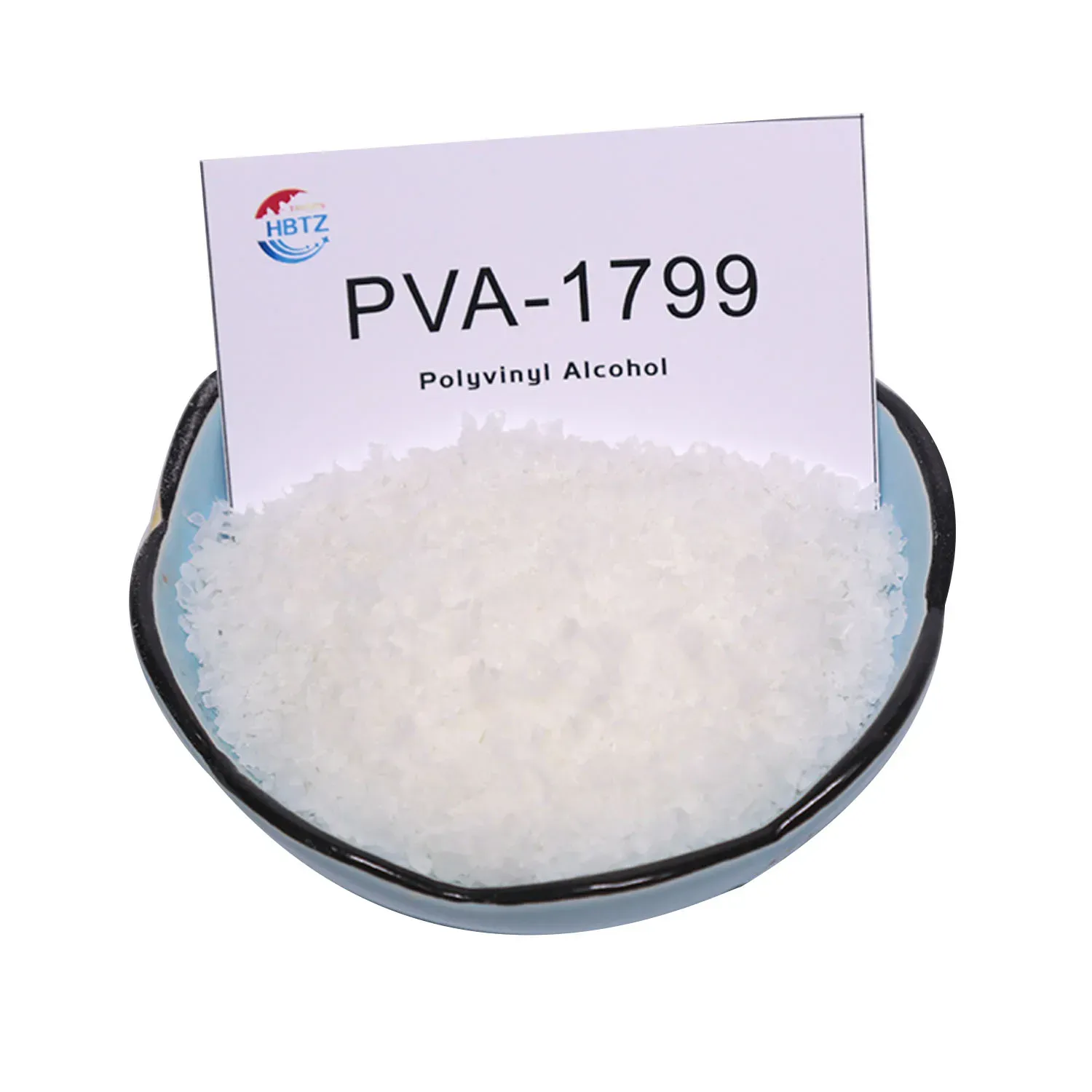
Vendor Comparison and Customized Solutions
When selecting a supplier for polyviny alcohol, B2B decision-makers must consider several factors beyond just polyvinyl acetate price. The choice significantly impacts product quality, supply chain reliability, and overall project success.
Key Vendor Comparison Criteria:
- Product Quality and Consistency: Reputable polyvinyl alcohol manufacturers maintain stringent quality control, offering consistent product specifications batch after batch, critical for predictable performance in your formulations.
- Technical Support and R&D Capabilities: A strong vendor provides expert technical assistance, helping clients troubleshoot issues, optimize formulations, and develop new applications. Access to R&D resources can be invaluable for innovation.
- Supply Chain Reliability: Robust logistics, stable production capacities, and responsive inventory management ensure timely delivery and prevent costly production delays.
- Certifications and Compliance: Adherence to international standards (e.g., ISO, REACH, FDA for specific grades) indicates a commitment to quality, safety, and environmental responsibility.
- Customization Capabilities: The ability to tailor PVA grades to specific client needs—adjusting hydrolysis degree, molecular weight, or additives—is a significant differentiator.
- Cost-Effectiveness and Value: While price is a factor, it should be weighed against the overall value proposition, including product performance, technical support, and supply reliability.
Customized Solutions:
We specialize in providing bespoke polyviny alcohol solutions. Our technical team works closely with clients to understand their unique application challenges and performance requirements. This collaborative approach allows us to:
- Develop Custom Grades: Modify standard PVA parameters to achieve specific viscosity profiles, solubility rates, adhesion strengths, or film characteristics.
- Optimize Formulations: Assist in integrating PVA seamlessly into existing or new product formulations for enhanced performance and cost-efficiency.
- Provide Application-Specific Expertise: Offer guidance on best practices for handling, dissolving, and utilizing PVA in diverse industrial processes.
Application Case Studies
Our expertise in polyviny alcohol has translated into tangible benefits for numerous clients across various sectors. These case studies highlight the practical application and advantages of our PVA products.
Case Study 1: Enhanced Performance in Dry-Mix Mortar for Façade Systems
A leading construction materials manufacturer sought to improve the adhesion strength and flexibility of their exterior insulation and finish system (EIFS) mortars. Traditional additives offered insufficient anti-cracking properties and workability in varying climate conditions. Our team recommended a partially hydrolyzed polyviny alcohol grade, specifically engineered for dry-mix applications, with a tailored viscosity profile.
- Solution: Implementation of a custom PVA grade (PVA-1799) that significantly improved the cohesion and adhesion of the mortar to insulation boards, enhancing both initial tack and long-term bond strength.
- Results: The client observed a 25% increase in tensile bond strength and a notable reduction in cracking during thermal cycling tests. The improved workability also led to a 10% increase in application efficiency on-site, garnering positive feedback from installation teams.
Case Study 2: Optimizing Textile Sizing for High-Speed Weaving
A large textile mill faced challenges with yarn breakage and excessive lint generation during high-speed weaving of fine cotton yarns. Their existing sizing agent was not providing adequate protection. We collaborated to develop a high-performance polyviny alcohol solution.
- Solution: A fully hydrolyzed PVA grade with a specific molecular weight was formulated to create a durable, flexible film on the warp yarns. This solution also offered excellent solubility for efficient desizing post-weaving.
- Results: The mill reported a 30% reduction in yarn breakages and a 40% decrease in lint formation, leading to significantly higher weaving efficiency and reduced downtime. This also extended the lifespan of their weaving machinery and improved fabric quality.
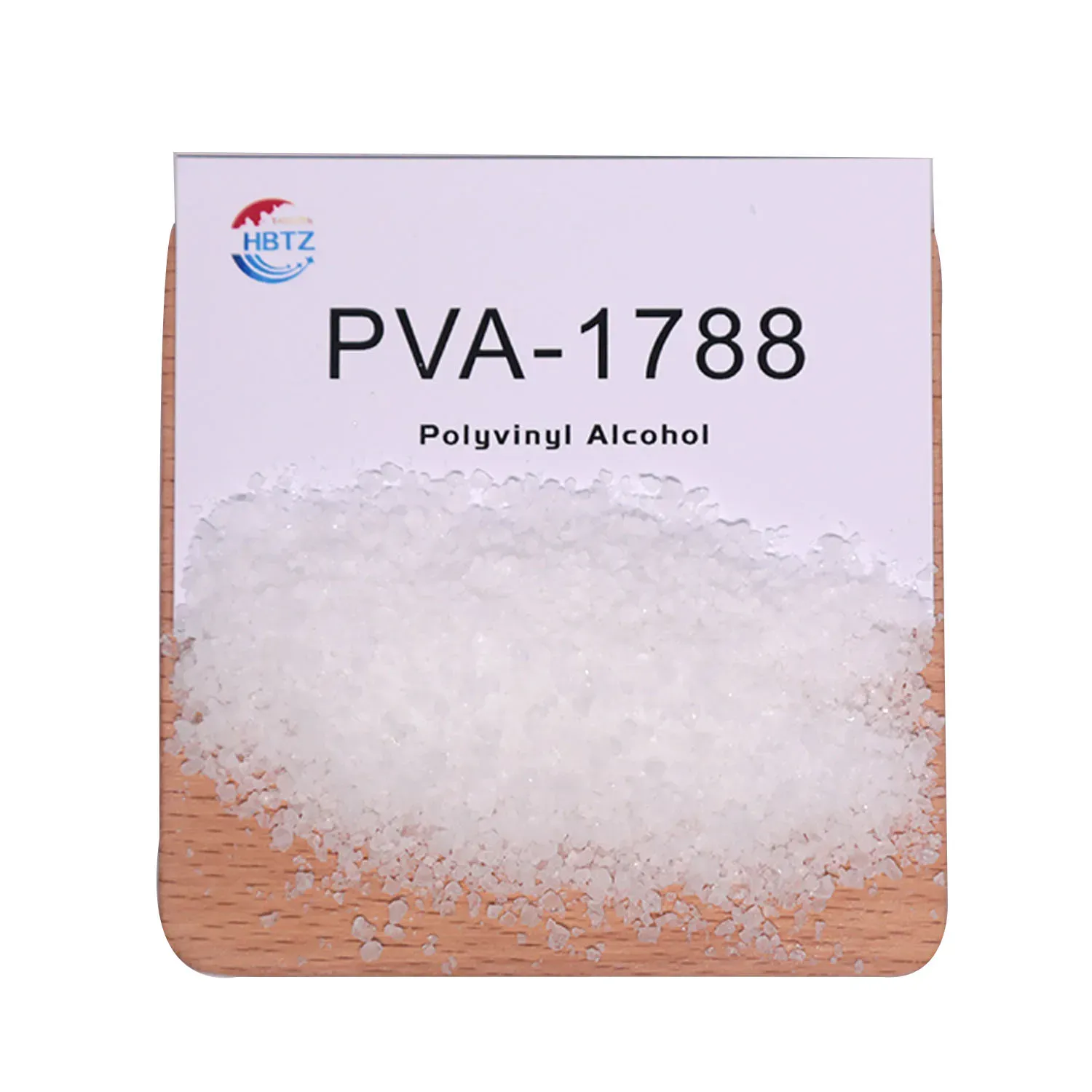
Frequently Asked Questions (FAQ)
Q1: What is the primary difference between partially and fully hydrolyzed Polyviny Alcohol?
A1: The degree of hydrolysis (DH) dictates the number of residual acetate groups. Partially hydrolyzed PVA (typically 87-89% DH) is more readily soluble in cold water and has better adhesion to hydrophobic surfaces. Fully hydrolyzed PVA (typically >98% DH) requires hot water for dissolution but offers superior water resistance, tensile strength, and chemical resistance once dried.
Q2: How does PVA compare to Polyvinyl Acetate price and performance?
A2: Polyvinyl Acetate (PVAc) is the precursor to PVA. While PVAc is often used as a base for adhesives and paints, PVA offers superior film-forming properties, water solubility, and chemical resistance when processed. PVA's price typically reflects the additional processing steps (hydrolysis) and its enhanced performance characteristics for specific applications where PVAc might not suffice.
Q3: Is Polyviny Alcohol environmentally friendly?
A3: Yes, PVA is considered a more environmentally friendly option in many applications. It is water-soluble, reducing the need for organic solvents, and under specific conditions, it is biodegradable in aerobic and anaerobic environments, breaking down into water and carbon dioxide.
Lead Time, Warranty, and After-Sales Support
Lead Time & Fulfillment:
We maintain robust inventory levels and efficient logistics to ensure timely delivery. Standard lead times for common polyviny alcohol grades are typically 7-14 business days for domestic orders and 21-30 days for international shipments, depending on destination and volume. Expedited shipping options are available upon request. We work closely with clients to forecast demand and manage inventory, ensuring seamless supply chain integration.
Warranty Commitments:
All our polyviny alcohol products are manufactured under strict quality control processes and come with a standard warranty ensuring they meet or exceed the specified technical parameters upon delivery. We warrant that our products are free from defects in material and workmanship when stored and used according to recommended guidelines for a period of 12 months from the date of manufacture.
Customer Support:
Our dedicated customer support team and technical experts are available to assist with product selection, application guidance, troubleshooting, and post-sales inquiries. We offer comprehensive technical documentation, safety data sheets, and certificate of analysis for all shipments. For any assistance, please contact us via phone at +86-531-88888888 or email at info@tangzhihpmc.com.
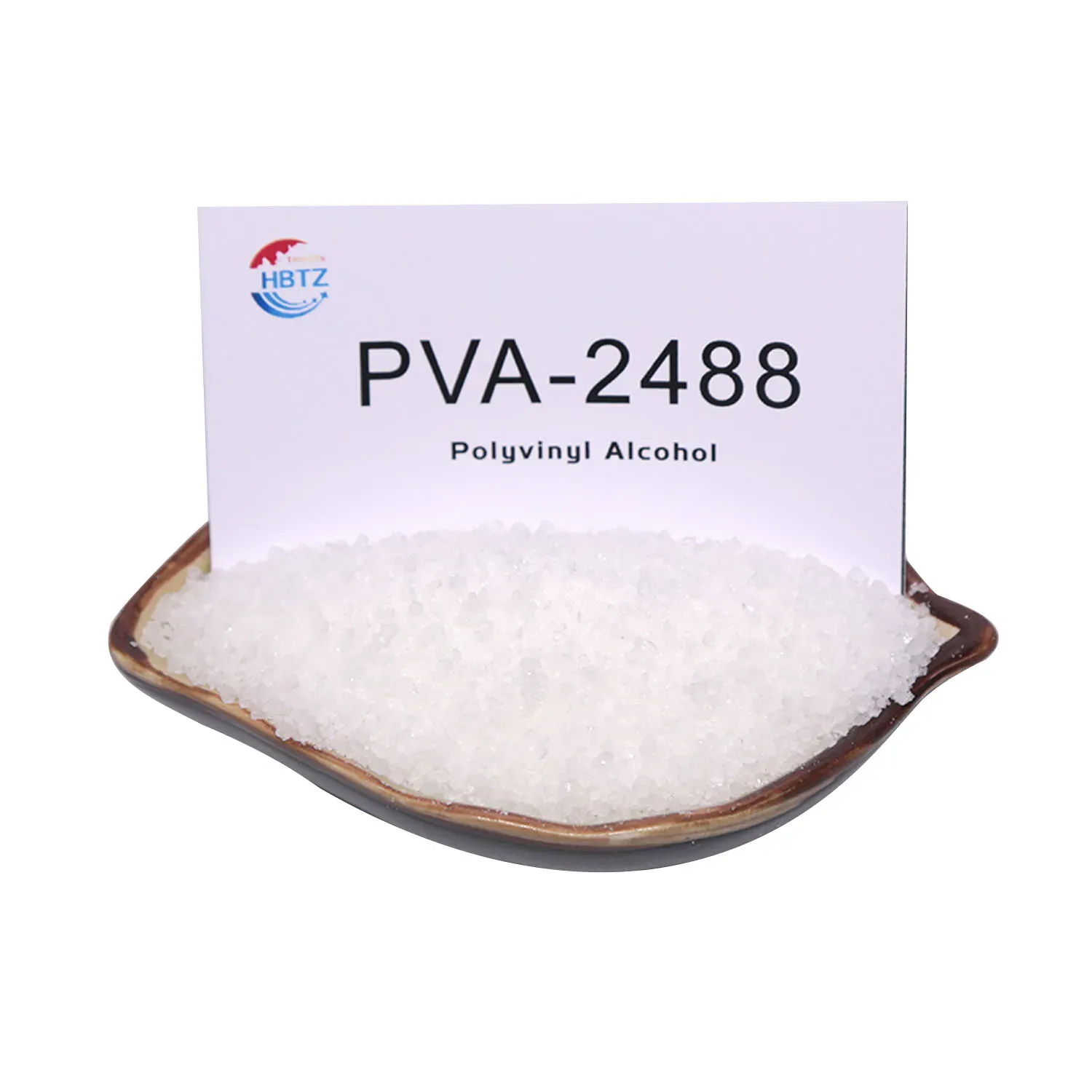
Authoritative Certifications and Quality Assurance
Our commitment to quality and excellence in manufacturing polyviny alcohol is substantiated by our adherence to stringent international standards and certifications. We operate under an ISO 9001 certified Quality Management System, ensuring consistent product quality and process reliability. Furthermore, our products are compliant with relevant regulatory frameworks, including REACH (Registration, Evaluation, Authorisation and Restriction of Chemicals) for European markets, and are regularly subjected to third-party testing to verify technical specifications and safety parameters. Our long-standing partnerships with global industry leaders underscore our reputation as a trusted supplier among polyvinyl alcohol manufacturers.
Conclusion
Polyviny Alcohol stands as a cornerstone in modern industrial chemistry, offering a remarkable blend of versatility, performance, and environmental consideration. From enhancing the durability of pva cement to enabling advanced textile manufacturing and sustainable packaging, its applications are expansive and continually evolving. As a specialized manufacturer, we are dedicated to providing high-quality PVA solutions tailored to the exacting demands of our B2B partners, ensuring superior product performance and contributing to their operational success.
References
- Finch, C. A. (1992). Polyvinyl Alcohol: Properties and Applications. John Wiley & Sons.
- Schellbach, C., Renz, H., Grosse, W. et al. (2012). Poly(vinyl alcohol) as an alternative to poly(vinyl acetate) for the formulation of cement-based materials. Journal of Materials Science, 47(11), 4785–4793.
- Dunn, A. S. (1987). Polyvinyl Alcohol: Basic Properties and Uses. Polymer International, 13(4), 185-204.
- U.S. Environmental Protection Agency. (2018). Polyvinyl Alcohol (PVA) Assessment.
- International Organization for Standardization (ISO) 9001:2015 - Quality management systems – Requirements.
-
Cellulose Fiber Suppliers | Sustainable Natural Fibers for Industry and InnovationNewsNov.20,2025
-
Reliable Hydroxypropyl Methylcellulose Suppliers for Pharmaceutical & Industrial Use | TangzhiNewsNov.20,2025
-
Leading Cellulose Insulation Supplier for Sustainable Building MaterialsNewsNov.19,2025
-
Trusted Hydroxypropyl Cellulose Suppliers for Quality & SustainabilityNewsNov.18,2025
-
Top Cellulose Acetate Suppliers for Sustainable Industrial SolutionsNewsNov.18,2025
-
Reliable HPMC Suppliers for Sustainable Industrial Solutions | TangzhiNewsNov.18,2025





















